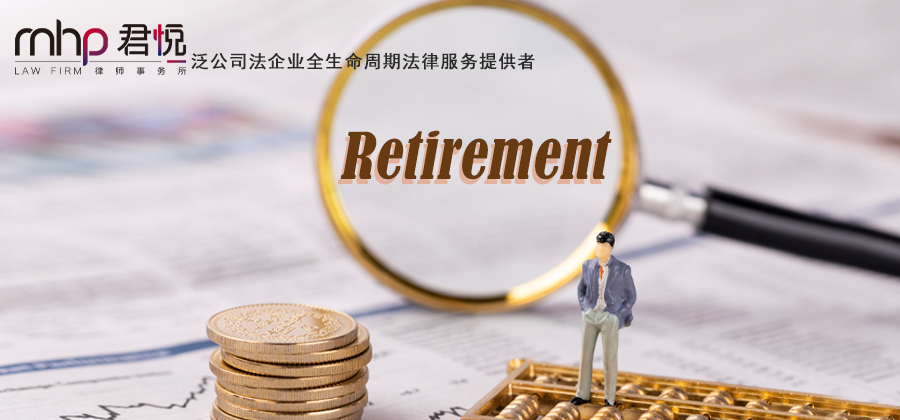Open a micro letter and sweep a two-dimensional code
Subscribe to our WeChat public number
Turn on the phone and sweep the two-dimensional code
You can access the website and share it with your friends through a mobile phone

On September 13, 2024, the 11th Session of the Standing Committee of the 14th National People’s Congress approved a plan to progressively raise the statutory retirement age for men from 60 to 63, for civil servant women (female cadres) from 55 to 58 and for blue-collar women from 50 to 55 in next 15 years, starting from January 1, 2025. It is Chinese government’s latest efforts to cope with aging population, shrinking workforce and straining pension fund.
1、Work longer
The current retirement age for men is 60, and women 50 or 55, depending on their jobs. At about 54, the average age of retirement in China, is among the lowest in the world. The standards were set decades ago. But the life expectancy has soared since then and the number of working adults has begun to shrink. It is reported that the country’s main pension fund may run out of money by 2035. Therefore, having people work longer will help facilitate more reasonable and better use of human resources and ease pressure on pension fund.
In accordance with the plan, starting from January 1, 2025, statutory retirement age of men and civil servant women (whose current retirement age is 55) will be extended by one month for every four months to 60 and 58, respectively, and the statutory retirement age of blue-collar women whose current retirement age is 50 will be extended by one month for every two moths to 55.
The government launched retirement age calculation services on the official website(https://si.12333.gov.cn)(https://www.mohrss.gov.cn/SYrlzyhshbzb/ztzl/zt202409/) and WeChat mini programs at the official account of the Ministry of Human Resources and Social Security.
2、Pay pension longer
Currently, the minimum year of pension contributions is 15 years. The plan requires to gradually lift the minimum year of pension contributions to 20 years through extending 6 months every year in the next 10 years starting from January 1, 2030.
If an employee has reached the statutory retirement age but his/her pension contribution years have not yet reached the minimum years, he/she may apply for extending contribution period or make one-off contribution to achieve the minimum contribution years.
3、Retire early
An employee may voluntarily retire early if all the following conditions are met:
(1) he/she retires no more than 3 years earlier than his/her statutory retirement age;
(2) his/her age has reached 50 (for blue-collar women), 55 (civil servant women) or 60 (men) at the time of early retirement; and
(3) his/her pension contribution years have reached minimum contribution years.In addition, the plan requires to improve early retirement mechanism for people who engage in special types of work, such as underground work, work at a high altitude, work with high temperature and particularly heavy physical labor, and people who work at high altitude.
4、Postpone retirement
An employee may postpone retirement if all the following conditions are met:
(1) he/she has reached statutory retirement age;
(2) retirement is postponed no more than 3 years; and
(3) his/her employer has agreed to the postponement.
5、Improve pension incentive mechanism
The plan vows to improve pension’s incentive mechanism. In principle, employees are encouraged to make long-term contributions, make more contributions and postpone retirement for more pension. Specifically, an employee’s cumulative years of contribution will determine the ratio of pension payment that he/she would be entitled to, his/her actual contribution will determine pension calculation base, and pension in his/her individual account will be determined by his/her retirement age, savings in the individual account and other factors.
6、Protect employees who work after retirement
If an employer hires anyone who has retired after reaching statutory retirement age, it is obligated to protect the employee’s interests, including remuneration, rest and vacation, labor safety and health, and work-related injury.
However, it is not clear whether such employees can enjoy full labor law protections. Currently, most of the labor dispute arbitration tribunals and courts hold a view that as such employees have retired before entering into contracts with their employers, they are not eligible to enjoy labor law protections and related disputes should be deemed as general civil disputes governed by general civil law rather than labor laws. China’s Supreme Court released a draft judicial interpretation seeking public opinion in December 2023, for the first time clarifying that if an employee who has reached the statutory retirement age but has not yet enjoyed pension benefits works for an employer, the employee may request that disputes over labor remuneration, working hours, rest and vacation, labor protection, occupational hazard protection, and work-related injury insurance benefits be handled by referring to and applying labor laws and regulations. We can expect that those employees who work after retirement would probably receive equal labor protections after official promulgation of the judicial interpretation.
7、Expect implementation regulation
The plan forms the framework of delaying retirement age and lifting minimum year of pension contribution. Many details are yet to be clarified. The Standing Committee has authorized the State Council to formulate regulation for implementing and supplementing the plan, which deserves our full attention.

7F Wheelock Square, 1717 Nanjing West Road, Shanghai 200040, PRC
Zip Code:200040
Phone:+8621 61132988
Fax:61132913
Email:hr@mhplawyer.com